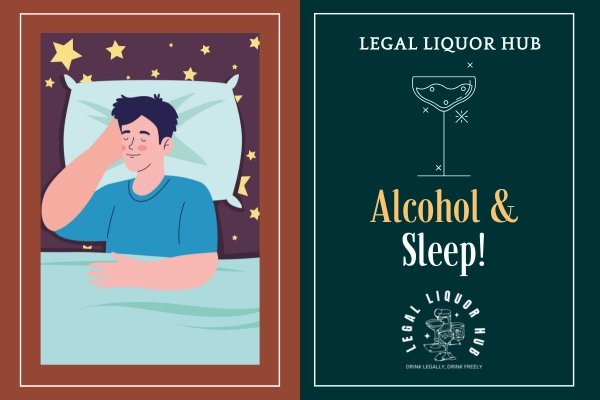Alcohol may help you fall asleep quickly, but it disrupts deep rest. Learn the real impact of alcohol on sleep with myths and facts explained.
When it comes to a good night’s sleep, alcohol often finds itself in the spotlight. Many people believe a drink or two before bed can help them sleep better, but the truth is more complex. While alcohol may make you feel drowsy initially, its overall impact on sleep quality is far from beneficial. Let’s break down the myths and facts about alcohol and sleep.
Myth 1: Alcohol Helps You Sleep Better
Fact: Alcohol can help you fall asleep faster, but it disrupts your natural sleep cycle.
Alcohol has a sedative effect that may make you feel relaxed and sleepy, but it interferes with REM sleep—the stage where your body and mind rejuvenate. Less REM sleep means you wake up feeling groggy, even after a full night in bed.
Myth 2: A Nightcap Reduces Insomnia
Fact: Alcohol may mask sleep troubles, but it’s not a cure.
People struggling with insomnia sometimes rely on a “nightcap” to drift off. However, dependence on alcohol for sleep can worsen sleep issues in the long run. Once the sedative effects wear off, you may experience fragmented sleep and frequent awakenings.
Myth 3: Alcohol Prevents Snoring and Sleep Apnea
Fact: Alcohol actually worsens breathing problems during sleep.
Since alcohol relaxes throat muscles, it can increase snoring and aggravate sleep apnea. For people already dealing with sleep-related breathing disorders, alcohol before bed can make symptoms more dangerous.
Myth 4: A Few Drinks Don’t Affect Sleep Quality
Fact: Even small amounts of alcohol can disrupt sleep.
Research shows that even moderate drinking can reduce sleep quality by 9–40%, depending on the quantity. So, even if you feel rested, your body isn’t getting the deep, restorative sleep it needs.
Tips for Better Sleep Without Alcohol
♦ Stick to a regular bedtime routine.
♦ Limit caffeine and heavy meals before bed.
♦ Keep your bedroom cool, dark, and quiet.
♦ Try herbal teas or relaxation techniques like meditation
Final Thoughts
While alcohol might feel like a shortcut to dreamland, the reality is it robs your body of restorative sleep. If quality rest is your goal, it’s best to avoid alcohol close to bedtime. Remember—good sleep is just as important as healthy eating and exercise for your overall well-being.
Need Drinking liquor/alcohol permit : Apply Now





